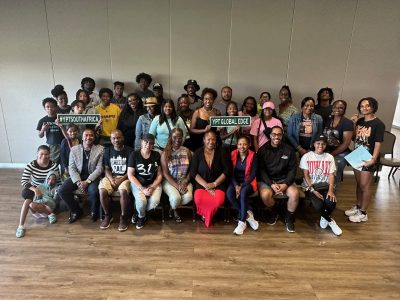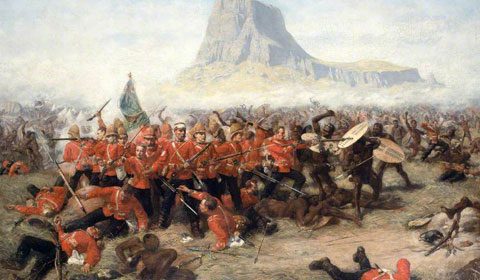Marikana, South Africa (CNN) — Rising tensions at a South African platinum mine exploded Thursday in grisly violence as police opened fire on striking miners.
Blood-stained bodies lay strewn about a field in a police response reminiscent of the ugly days of apartheid.
Police have not released a death toll, but a South African Press Association reporter counted 18 corpses. It’s feared more could be dead.
Witnesses described the scene as chaotic, making it seemingly impossible to determine who started firing on whom first.
The South African Police Service, though, issued a statement late Thursday indicating its members trying to “disarm and disperse a heavily armed group of illegal gatherers at Lonmin mine” when they were fired upon.
“The South African Police Service was viciously attacked by the group, using a variety of weapons, including firearms,” the agency said. “The police, in order to protect their own lives and in self defense, were forced to engage the group with force.”
Taurai Maduna was one of several journalists at the mine in Marikana who was told the weeklong strike was going to end Thursday.
“We waited and waited,” he told CNN. “Police started moving into the crowd.”
He said the police brought in barbed wire to fence in the miners, who were believed to be armed with guns, machetes and sticks, CNN affiliate E-TV reported.
Police fired tear gas and then used a water cannon to disperse the strikers congregating atop a hill. The mine workers retaliated by firing at police, and a storm of gunfire lasted about three minutes, E-TV said.
“There was a lot of commotion,” Maduna said. “There was tear gas everywhere. I haven’t seen anything like this.”
The situation remained tense Thursday night after what was the deadliest day in almost a week of violence at the Markinana mines.
With the situation “still unfolding” at that time, “senior officials from the Independent Police Investigative Directorate” were managing the scene, according to the South African Police Service. The commissioner of the national police agency, Gen. Riah Phiyega, was among those at the site.
How diamonds, mining fuel Africa’s conflicts
Production at the world’s third-largest platinum producer came to a halt as workers, mostly rock drillers, embarked on a wildcat wage strike last Friday over a wage dispute. The miners who earn between $300 and $500 a month are demanding up to $1,500 a month in salary.
The violence was believed sparked by a rivalry between unions that wield a lot of power and influence in South Africa.
A statement from Lonmin said 10 people had died before Thursday’s incident — eight mine workers and two policemen, who were reported to have been hacked to death.
Roger Phillimore, the chairman of Lonmin, said his company regretted the loss of life “in what is clearly a public order rather than labor relations associated matter.”
“We are treating the developments around police operations this afternoon with the utmost seriousness,” he said.
The company had issued an ultimatum to the striking workers: Return to work by Friday or face dismissal. That was before Thursday’s bloodshed.
“The violence that has occurred cannot be condoned and has no place in the way that labor relations and inter-union relations should be conducted,” said Mildred Oliphant, the minister of labor. “The loss of life has been particularly tragic and unnecessary.”
Earlier this year, at least three people were killed during a six-week strike at the world’s second-largest platinum mine, Impala Platinum.
That violence also was blamed on union rivalry, though the two implicated unions, accused of trying to outdo each other in negotiating wages, deny instigating the clashes.
Frans Baleni, head of the dominant National Union for Mineworkers, said Monday that members were under siege.
“Our members have been attacked, and that cannot be said to be clashes or rivalry, it is pure criminality,” he said.
The newer Association of Mineworkers and Construction Union also denied any blame.
In response to the latest violence, a statement posted on South African President Jacob Zuma’s website on Thursday night said Zuma “is alarmed and deeply saddened at the manner in which (the) dispute … has degenerated,” calling the deaths “tragic” and “senseless.”
The president urged union and business leaders to use “dialogue without any breaches of law or violence” to resolve the “situation before it deteriorates any further,” adding that government authorities have a role as well.
“I have instructed law enforcement agencies to do everything possible to bring the situation under control and to bring the perpetrators of violence to (justice),” Zuma said.














